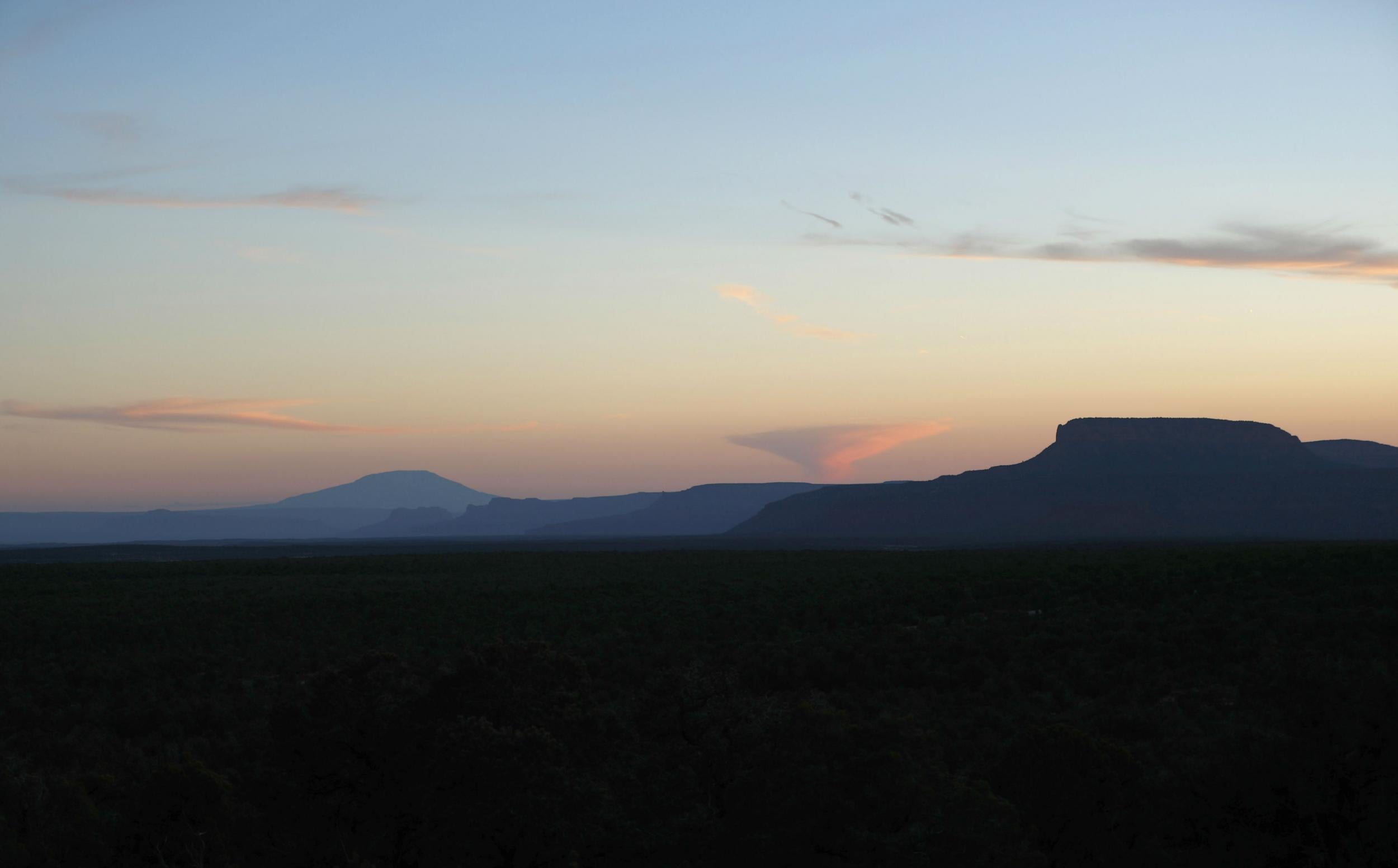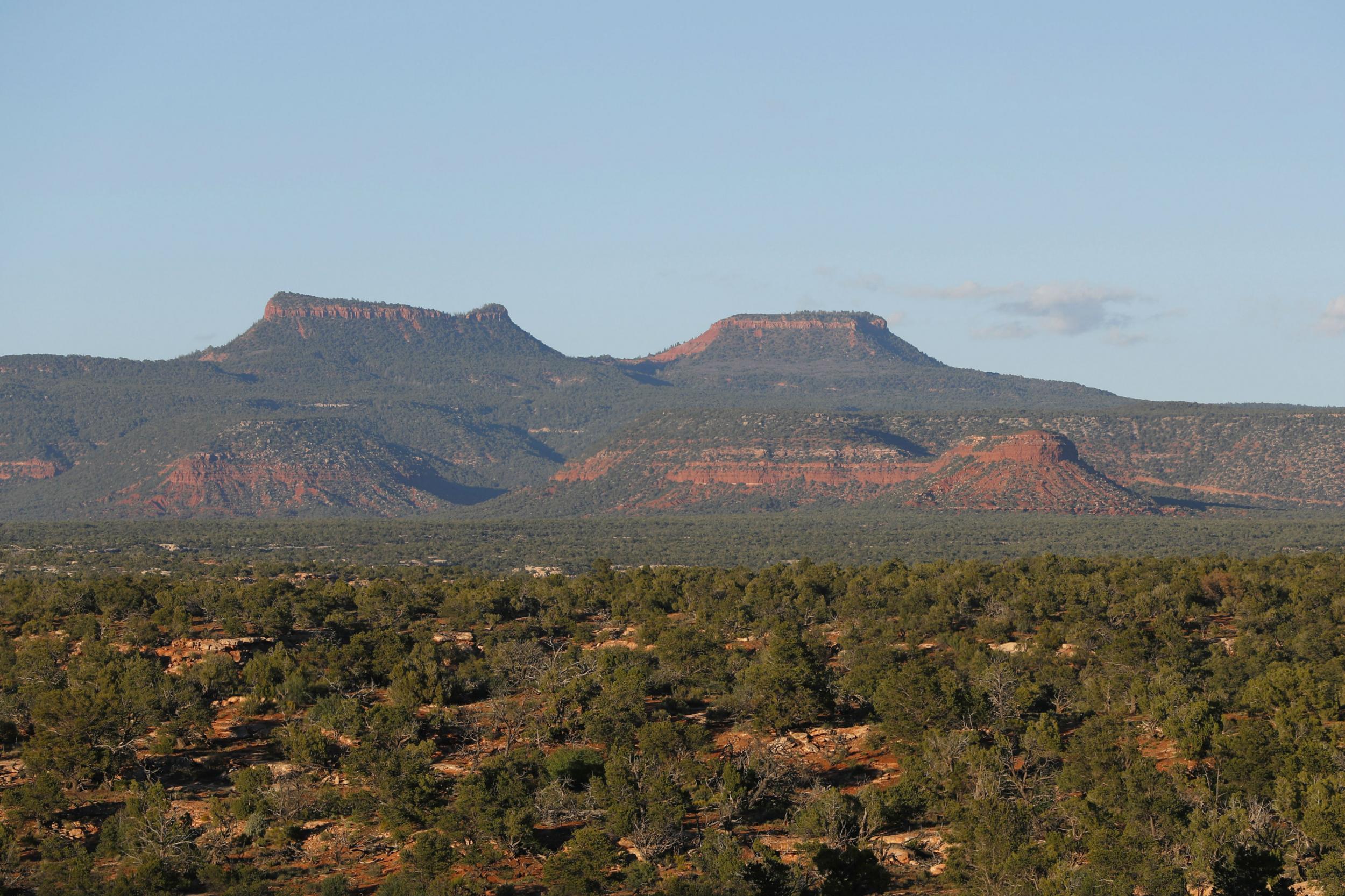Trump accused of 'ruinous' sellout after official recommends shrinking national monuments
There are 129 national monuments - the first created in 1906

Your support helps us to tell the story
From reproductive rights to climate change to Big Tech, The Independent is on the ground when the story is developing. Whether it's investigating the financials of Elon Musk's pro-Trump PAC or producing our latest documentary, 'The A Word', which shines a light on the American women fighting for reproductive rights, we know how important it is to parse out the facts from the messaging.
At such a critical moment in US history, we need reporters on the ground. Your donation allows us to keep sending journalists to speak to both sides of the story.
The Independent is trusted by Americans across the entire political spectrum. And unlike many other quality news outlets, we choose not to lock Americans out of our reporting and analysis with paywalls. We believe quality journalism should be available to everyone, paid for by those who can afford it.
Your support makes all the difference.Campaigners have criticised a proposal by the Trump administration to alter the boundaries of several protected national parks and possibly permit drilling and mining, as a “ruinous” sell-out to special interests.
Interior Interior Secretary Ryan Zinke has recommended that Donald Trump later at least three so-called national monuments - among them Utah’s Bears Ears National Monument - as part of a review of the federally-owned parks.
Mr Zinke said he would not seek to rescind any of the 27 of the parks he was asked to review. However, he said he would push for some boundary changes and he also left open the possibility of allowing drilling or mining.

“The recommendations I sent to the president on national monuments will maintain federal ownership of all federal land and protect the land under federal environmental regulations, and also provide a much needed change for the local communities who border and rely on these lands for hunting and fishing, economic development, traditional uses, and recreation,” he said in a statement.
In an interview with the Associated Press, Mr Zinke declined to reveal his recommendations for individual sites and would not answer if any monuments would be newly opened to energy development, mining and other industries that Mr Trump has championed. “You can protect the monument by keeping public access to traditional uses,” he said.
Yet campaigners were quick to criticise the proposals to alter the parks, which were carved out of the wilds and oceans by Mr Trump’s predecessors. The Sierra Club, one of the US’s oldest environmental groups, said it appeared there was an intention to “sell-out public lands to special interests”.
“Any recommendation from Secretary Zinke to shrink national monuments is hypocritical at best and ruinous at worst. Secretary Zinke claims to support public lands, but now we know he’s just one more Trump administration stooge for polluting special interests,” said Sierra Club Executive Director Michael Brune.
“Whether the preservation of Native American sacred sites or a natural wonder of the world, public lands and waters are granted monument status for a reason. Stripping these places of that protection devalues the diverse history they preserve, the outdoor economy they support, and the future they offer.”
The US has a total of 129 national monuments, the first of which, Devils Tower in Wyoming, was established by Theodore Roosevelt in 1906. In addition to Bears Ears, reports suggest Mr Zinke has recommended changes to Grand Staircase-Escalante, also in Utah, and Oregon’s Cascade-Siskiyou National Monument.
Bill Clinton declared the 1.9m-acre Grand Staircase-Escalante in 1996, while Barack Obama designated the 1.35m-acre Bears Ears last year. Cascade-Siskiyou, which now encompasses more than 113,000 acres, was established by Mr Clinton shortly before leaving office and expanded by Mr Obama in January just before he left office.
Trump had ordered Mr Zinke to examine more than two dozen sites established by three presidents under the 1906 Antiquities Act, including Republican George W Bush. The process pitted those who have felt marginalised by federal actions over the past 20 years against backers who see the sites as bolstering tourism and recreation while safeguarding important relics, environments and species, the AP said.
Other campaigners also denounced the proposals.
Gene Karpinski, president of the League of Conservation Voters, described Mr Zinke’s review a pretext for “selling out our public lands and waters” to the oil industry and others.
Jacqueline Savitz, senior vice president of Oceana, which has been pushing for preservation of five marine monuments included in the review, said: “A change can be a small tweak or near annihilation. The public has a right to know.”
A tribal coalition that was behind a push for the creation of the 2,100-square-mile Bears Ears National Monument on sacred tribal land, is prepared to launch a legal fight against even a slight reduction in its size, said Gavin Noyes of the non-profit Utah Dine Bikeyah.
Join our commenting forum
Join thought-provoking conversations, follow other Independent readers and see their replies
Comments